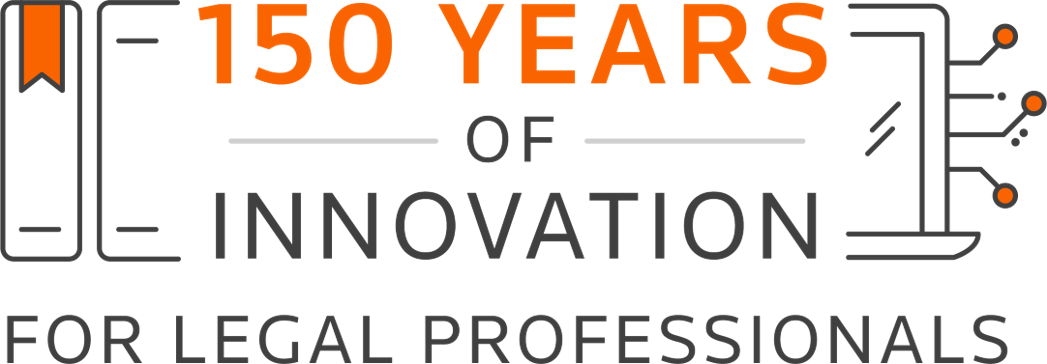Thomson Reuters Celebrates 150 Years: Three Essentials for Customer Partnership and Innovation

As Thomson Reuters commemorates a century and a half of partnering with and innovating for legal professionals, Legal Current explores the legacy John B. West bestowed on the company. When John B. West Publisher and Book Seller was founded in 1872, it marked the first iteration of what later become West Publishing Company, and eventually, Thomson Reuters.
Today Legal Current considers three ways West’s legacy endures across Thomson Reuters through the voice of customers, the human touch, and innovative technology.
The voice of the customer
When John B. West opened his shop in 1872, he catered to the needs of lawyers across upper Midwest region. He frequently traveled to meet with them to better understand and anticipate their needs – particularly for information.
His approach endures today in the development of Westlaw. Westlaw Edge builds on the iterations of Westlaw that came before it, and every feature of Westlaw Edge is developed in concert with Westlaw customers.
“We always ask our customers about their legal research challenges and test our products with customers to make sure we’re solving for those challenges,” senior director of Westlaw Product Management C.J. Lechtenberg said. “What does their legal research and writing process look like? What takes the most time? What do they find the most challenging?”
Senior Director for Westlaw Product Management Erik Lindberg added, “We look at overall usage patterns — which are anonymized, encrypted, and secure, from the thousands of research sessions conducted by legal professionals every day and use those patterns to improve our search algorithms and other recommendation engines.”
The human touch
The editorial enhancements that Thomson Reuters is known for today map to some of the earliest innovations of West’s business, such as bringing in a team of attorneys to annotate the law, creating digests, and developing the West Key Number System taxonomy to organize the law. It carries on with the Westlaw legacy of quality and accurate legal research, supported by hundreds of bar-admitted attorneys.
“What really gives Westlaw such an amazing lift are those editorial enhancements that are all created by humans. We have human attorney editors who are reading virtually every case and every statute, and then summarizing, organizing, and classifying the most critical parts,” Lindberg said.
In this video, attorney editors share how their work and editorial enhancements help legal professionals conduct more accurate and efficient legal research.
Cutting-edge technology
West’s early efforts to revolutionize legal research remain critical to Thomson Reuters today, including efforts to integrate “the human touch” with innovative technology.
“One of our greatest advancements has been our use of artificial intelligence (AI) in our legal research products. But AI isn’t created in a technology vacuum,” Lechtenberg said. “Superior AI really requires three things: domain expertise, quality data, and AI experts. Fortunately for us, Thomson Reuters is uniquely positioned as having superiority in all three areas. Legal issues are very rarely black and white; they are often riddled with nuance. And nuance in language, especially legal language, is incredibly challenging for humans, let alone machines. That’s why we need human brainpower.”
West’s impact on the U.S. legal system and legal systems around the world is the result of his passion for listening to and learning from his customers. Learn more about the company’s legacy of customer-inspired innovation.